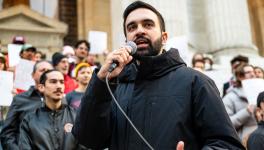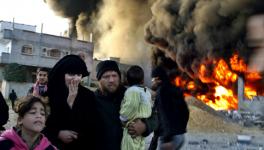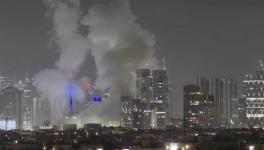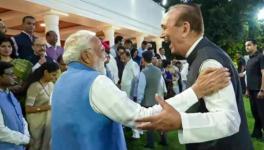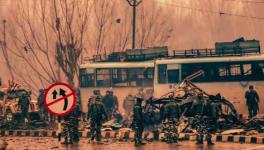INTERVIEW: ‘India Should Never Fight Indecisive ‘Wars’ With Pakistan’
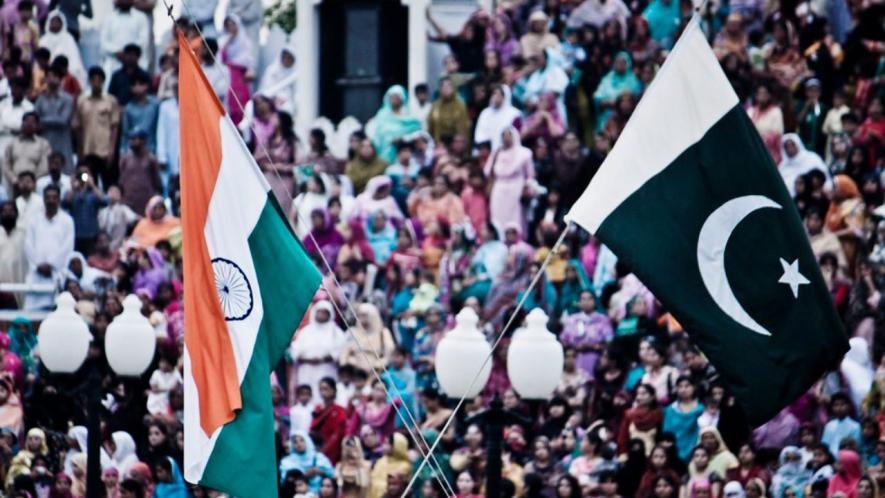
Image Courtesy: Flickr
Bharat Karnad, Emeritus Professor for National Security Studies, Centre for Policy Research, and Distinguished Fellow at the United Service Institution of India, is a prolific writer and security expert having written several books on India’s nuclear policy. Among the many books is `Staggering Forward: Narendra Modi and India’s Global Ambition’ and `Why India is Not a Great Power (Yet). Edited excerpts of an interview with senior journalist Rashme Sehgal on the hostilities between India and Pakistan after the terror attack on tourists in Pahalgam, Kashmir, on April 22.
Rashme Sehgal: What made US President Donald Trump jump into the recent Indo-Pak fracas? Did he fear the increased escalation leading to a nuclear conflict? US Vice President JD Vance had gone public saying that it ‘was none of our business’, but a day later, we saw US talking to both sides and going public on their claim. Your comments.
Bharat Karnad: Two things may have prompted the US President. One, Trump's proclivity to grab the international spotlight -- this time by jumping into the India-Pakistan tussle as international "peacemaker" and making completely false statements about pressuring the Indian and Pakistani governments to stand down.
Two, India's missile hits on the Nur Khan air base at Chaklala, HQ of the Strategic Plans Division, Pakistan's nuclear secretariat, and even, perhaps, on nuclear storage sites in the Kirana Hills, may have triggered America's overblown fears of a nuclear conflict.
RS: There were reports in a leading English daily that IAF had hit Kirana Hills in Punjab which provides storage facilities for their nuclear infrastructure, which was subsequently denied. I have two queries. First, nuclear facilities are built with many safeguards so much so that experts claim these facilities should be able to withstand such a hit (if not direct). Second, Pakistani experts claim nuclear facilities are spread across the country. Your comments.
BK: Yes, nuclear weapon sites are usually in dispersed locations, and they are physically well protected with hardening.
RS: President Trump in a subsequent tweet claimed it was US intervention that halted this fight and he was willing to mediate in a neutral place to resolve this dispute. Allowing the US to get involved will cease this as a bilateral issue. How will this affect India’s foreign policy?
BK: For over 20 years now, I have been warning in my books and other writings about the perils of getting too friendly with the US. Washington begins by taking you for granted, and takes liberties. When Vance called (Prime Minister) Modi, he should have strongly objected to the US intervention and told him in so many words to "Shut up! Stay out" because it was none of America's business. Modi should then have gone public by saying he had told the US to stop interfering. Instead. S Jaishankar (the foreign minister and the Ministry of External Affairs), as I understand, talked ambiguously about details, such as the proposed "neutral site" for negotiations, etc. So, we have given way on the last point and, diplomatically, once again helped the US to re-hyphenate India and Pakistan that New Delhi had striven so hard over the last 20 years to keep apart.
RS: Given that Indian security forces claimed that we were winning the war, should India have so readily agreed to a ceasefire? Some security analysts claim that India snatched defeat from the jaws of victory. Your views?
BK: India certainly had the upper hand -- our missile blows were landing and Pakistan's were being negated by a surprisingly good layered Indian air defence system. The trouble was that other than Muridke and Bahawalpur, the Indian government had no strategic objectives, as I pointed out in my 'Security Wise' Blog of May 7. There were no preparations, for instance, to straighten out the LOC (Line of Control) by capturing the Haji Pir Salient in Pakistan-occupied Kashmir -- the main channel for infiltrating terrorists into the Srinagar Valley. Or to take Skardu, to rationalise the Indian control of the border to the Saltoro Muztagh and the Siachen Glacier. These were doable goals, as I pointed out in my blog post of April 30. So, naturally, there is disappointment.
RS: India decided to teach Pakistan a lesson (post Pahalgam) by attacking terror facilities inside Pakistan. Do you see such an action as a deterrent, given the fact that terrorism remains an integral part of Pakistan’s state policy? If we are indeed creating a new benchmark, then should we not have kept up our attack?
BK: No. But it will make the ISI (Pakistan’s Inter- Services Intelligence) more creative in training and housing the Lashkar-e-Tayyaba and Jaish-e-Mohammad extremists now grouped under a new name -- The Resistance Front (TRF)-- make them less visible, less conspicuous.
RS: Both sides are claiming victory, with Pakistan claiming they shot down four of our planes, and the Indian side claiming likewise, but we have refused to provide any details. The result is that the Western media seems to be accepting Pakistan’s version. Your comments?
BK: It is predictable in an indecisive conflict that both sides claim victory! And that's why I have long argued that India should never fight indecisive "wars" with Pakistan. But that's precisely what the Modi regime once again did, and so we have all this crowing by the Pakistani state and media.
RS: During this conflict, Western observers have expressed admiration for the performance of Chinese military technology, citing reports that its J10C fighter jets shot down the French-made Rafale. Your comments on this, as also on how India’s indigenously manufactured weapons performed?
BK: Actually, the Pakistan Air Force had the upper hand, and were more effective in using the military technologies and platforms they have -- the Chinese J-10C multi-role fighter armed with the Chinese PL-15E long range air-to-air missile and the Swedish Saab Erieye Airborne Early-Warning and Control System. This was until Indians began relying majorly on its medium-range attack missiles -- the Brahmos, and on the Russian S-400 layered air defence system to neutralise PAF's offensive air movements.
RS: Modi’s address to the nation, warning that India will not cease to retaliate in full measure if future terrorist activities take place, seems to have had zero impact on Pakistan. Three terrorists were gunned down by security forces in Shopian. How then should we deal with Pakistan?
BK: Had we taken Haji Pir and/or Skardu, the message would have gone across that every Pakistan Army ISI-sponsored terrorist incident in India would result in Pakistan losing significant territory in PoK. It would have been a substantive deterrent and disincentive -- that equation of terrorism leading to loss of PoK territory. But this sort of strong punitive policy requires a powerful political will, which this country has never manifested in its military actions (barring in the 1971 War).
Rashme Sehgal is an independent journalist. The views expressed are personal.
Get the latest reports & analysis with people's perspective on Protests, movements & deep analytical videos, discussions of the current affairs in your Telegram app. Subscribe to NewsClick's Telegram channel & get Real-Time updates on stories, as they get published on our website.













